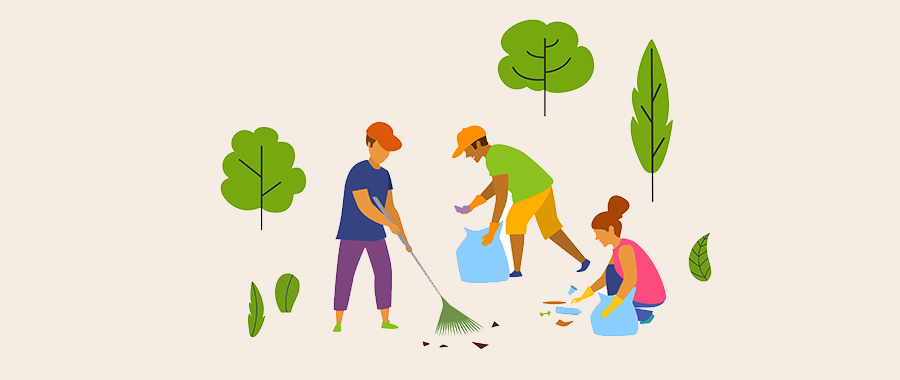In a world increasingly marked by digital interactions and fragmented social networks, one might ponder: how can we meaningfully reconnect with our communities and transcend the pervasive isolation that many experience today? As we navigate through contemporary society, the Bahá’í teachings illuminate the path toward a vibrant communal life, fostering relations that not only bridge the gaps between individuals but also construct a tapestry of collective identity. This article delves into the principles espoused by the Bahá’í Faith regarding the essentiality of community and the concomitant challenge posed by isolation.
The Bahá’í teachings underscore the significance of community as a fundamental unit of society, illustrating that human well-being flourishes through interconnectedness and mutual support. Suffused within these teachings is the notion that humanity can only attain its fullest potential when individuals come together, transcending self-imposed barriers and engaging in a rich tapestry of social interaction.
At the heart of the Bahá’í worldview is the concept of unity in diversity. Embracing the variegated aspects of human existence, diversity is not merely acknowledged but celebrated as an essential characteristic that enriches collective experiences. This principle invites individuals to come together, not as monolithic entities, but as a harmonious assembly of diverse backgrounds, beliefs, and perspectives. The blending of varied individual contributions has the potential to enrich discourse and create innovative solutions to communal challenges.
Yet, herein lies a challenge: how can one motivate individuals to embrace this diversity and actively engage in community life? It is often easier to retreat into the safety of solitary existence, especially given the pace of modern life. The distractions offered by digital media can create an artificial sense of connection, leading to a superficial engagement that masks the deeper human need for genuine interaction. The Bahá’í Faith posits that overcoming this tendency requires deliberate and concerted efforts to foster meaningful relationships.
Engagement in community life transcends mere attendance at gatherings; it necessitates active participation in the lives of others. Bahá’í teachings encourage individuals to cultivate virtues such as love, kindness, and forbearance, essential attributes for nurturing a thriving community. By embedding these values in interpersonal interactions, individuals can contribute to an atmosphere where each member feels valued, heard, and respected. This is particularly crucial in a society that often prioritizes individual achievement over collective well-being.
Moreover, Bahá’ís emphasize the importance of service to others as a pathway to community building. Service is not a superficial endeavor but a profound commitment to the upliftment of society. Engaging in acts of service—whether through volunteering, mentoring, or even small acts of kindness—serves to weave a tighter social fabric. Each act of service creates ripples, inspiring others to partake in uplifting their community, fostering a culture of responsiveness that counters the isolation prevalent in contemporary existence.
The practice of consultation is another hallmark of Bahá’í community life, serving as a mechanism to navigate conflicts, build consensus, and innovate. Consultation promotes open dialogue, encouraging individuals to express their thoughts while valuing the contributions of others. This collaborative approach not only enhances understanding but also engenders a sense of ownership and belonging within the community. Through effective consultation, individuals learn the art of reconciliation and collaboration, which are pivotal in overcoming disagreements and fostering unity.
Furthermore, the Bahá’í teachings advocate for inclusive environments where all individuals, regardless of background or status, have the opportunity to contribute meaningfully. Creating such inclusive spaces necessitates conscious efforts to dismantle barriers: social, economic, and psychological—transforming communities into bastions of support and encouragement. Responsibility lies with each member of the community to challenge existing prejudices and facilitate an atmosphere of acceptance.
It is also vital to recognize the role of education in forging a connected community. Continuous learning and spiritual development foster a deeper understanding of oneself and others. In the Bahá’í framework, education is not solely limited to formal instruction; it encompasses moral, spiritual, and practical insights that empower individuals to engage effectively with their communities. A well-rounded education enhances individual capabilities, promoting active participation in communal endeavors and the betterment of society as a whole.
Thus, returning to community and overcoming a culture of isolation is not an insurmountable task; it requires a sincere commitment to cultivate relationships, engage in service, practice consultation, and embrace inclusivity. By adopting these Bahá’í principles, individuals can contribute to the creation of vibrant communities that embody the spirit of unity in diversity.
In conclusion, the ethos encapsulated within the Bahá’í teachings serves as a guiding light, illuminating the pathway back to community and away from isolation. The odyssey toward building and nurturing community entails collective effort, recognizing that each person has a role in creating a supportive environment. As one poetically suggested, “We are but a reed, torn from the reedbed,” signifying that our strength lies in our interconnectedness. The challenge lies before us: shall we embrace the call to return to community and foster connections, thereby enriching both our lives and those of others?
